Russian government resigns
Russia’s government resigned in a shock announcement on Wednesday after President Vladimir Putin proposed a series of constitutional reforms.
In a televised meeting with the Russian president, Prime Minister Dmitry Medvedev said the proposals would make significant changes to the country’s balance of power and so “the government in its current form has resigned”.
“We should provide the president of our country with the possibility to take all the necessary measures” to carry out the changes, Medvedev said. “All further decisions will be taken by the president.”
Putin asked Medvedev, his longtime ally, to continue as head of government until a new government has been appointed. “I want to thank you for everything that has been done, to express satisfaction with the results that have been achieved,” Putin said.
“Not everything worked out, but everything never works out.” He also proposed creating the post of deputy head of the Security Council, suggesting that Medvedev take on the position.
Earlier on Wednesday Putin proposed a referendum on a package of reforms to Russia’s constitution that would strengthen the role of parliament.
The changes would include giving parliament the power to choose the prime minister and senior cabinet members, instead of the president as in the current system.
Speculation has swirled about changes to Russia’s political system that would allow Putin to stay on after 2024. Some have suggested he could remain as a prime minister with increased powers or in a powerful behind-the-scenes role.
It was unclear how, if at all, the constitutional changes could affect Putin’s future role. But leading Kremlin critic Alexei Navalny said he expected any referendum to be “fraudulent crap” and that Putin’s goal remained to be “sole leader for life”.
Russia last conducted a referendum in 1993 when it adopted the constitution under Putin’s predecessor Boris Yeltsin.
Putin has held a firm grip on the country since coming to power with Yeltsin’s resignation in 1999, staying on as prime minister when Medvedev took the presidency. Re-elected to a six-year term in 2018, Putin has seen his approval ratings fall to some of their lowest levels, though still far above those of most Western leaders. Recent polls put Putin’s rating at 68-70 percent, up a few points from a year ago but down from a high of more than 80 percent at the time of his last election.
Hit by Western sanctions over the 2014 annexation of Crimea, Russia’s economy has stagnated and most Russians have seen their disposable income fall. Frustration boiled over last summer, with thousands taking to the streets of Moscow to protest the exclusion of opposition candidates from local elections, leading to wide-scale arrests and long jail terms for a number of demonstrators.
-
 Vertical Tabs Coming To Google Chrome
Vertical Tabs Coming To Google Chrome -
 Jane Seymour Reveals THIS Beloved Romance Was 'worst-reviewed' Movie Ever
Jane Seymour Reveals THIS Beloved Romance Was 'worst-reviewed' Movie Ever -
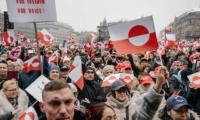 European Leaders Slam Trump’s Tariff Threat Over Greenland As ‘unacceptable’
European Leaders Slam Trump’s Tariff Threat Over Greenland As ‘unacceptable’ -
 Princess Eugenie Leaves Father Andrew 'devastated' With Big Step: 't's Brooklyn Beckham Level'
Princess Eugenie Leaves Father Andrew 'devastated' With Big Step: 't's Brooklyn Beckham Level' -
 Nova Scotia Snow Storm Warning Issued As Heavy Snow Moves In
Nova Scotia Snow Storm Warning Issued As Heavy Snow Moves In -
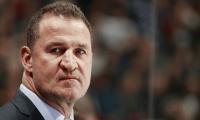 Vancouver Canucks 2025-26 Season: Adam Foote’s Future Under Early Scrutiny
Vancouver Canucks 2025-26 Season: Adam Foote’s Future Under Early Scrutiny -
 Gabriel Diallo Vs Alexander Zverev: Rising Canadian Eyes Major Upset Opportunity
Gabriel Diallo Vs Alexander Zverev: Rising Canadian Eyes Major Upset Opportunity -
 Bo Nix Injury Update: Broncos Quarterback Fractures Ankle Against Bills
Bo Nix Injury Update: Broncos Quarterback Fractures Ankle Against Bills -
 Oilers Vs Canucks: Why Edmonton Is Without Leon Draisaitl
Oilers Vs Canucks: Why Edmonton Is Without Leon Draisaitl -
 49ers Crushed As Kenneth Walker III Leads Seahawks To 41-6 Win
49ers Crushed As Kenneth Walker III Leads Seahawks To 41-6 Win -
 Canadiens Star Lane Hutson Makes History With 100th NHL Assist
Canadiens Star Lane Hutson Makes History With 100th NHL Assist -
 Bridgerton’s Claudia Jessie Says Her Real-life Style Is Nothing Like Eloise’s
Bridgerton’s Claudia Jessie Says Her Real-life Style Is Nothing Like Eloise’s -
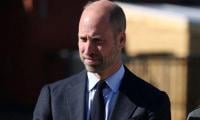 Prince William Barred From Riding E-scooter At His Own Home!
Prince William Barred From Riding E-scooter At His Own Home! -
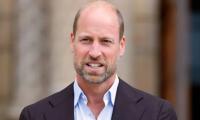 Prince William New PR Step Is Not 'shrewed Move,' Says Expert
Prince William New PR Step Is Not 'shrewed Move,' Says Expert -
 Barack Obama Honours Michelle Obama On Her 62nd Birthday
Barack Obama Honours Michelle Obama On Her 62nd Birthday -
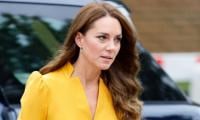 Why Kate Middleton Runs Away From 'some Royal Relatives'
Why Kate Middleton Runs Away From 'some Royal Relatives'



